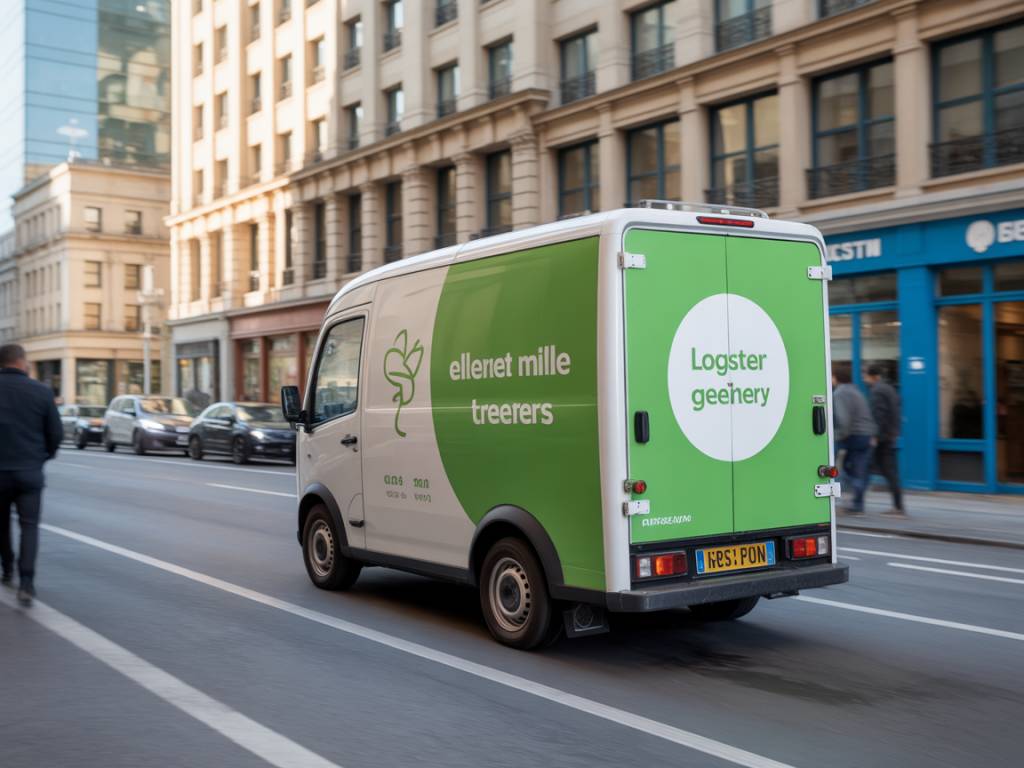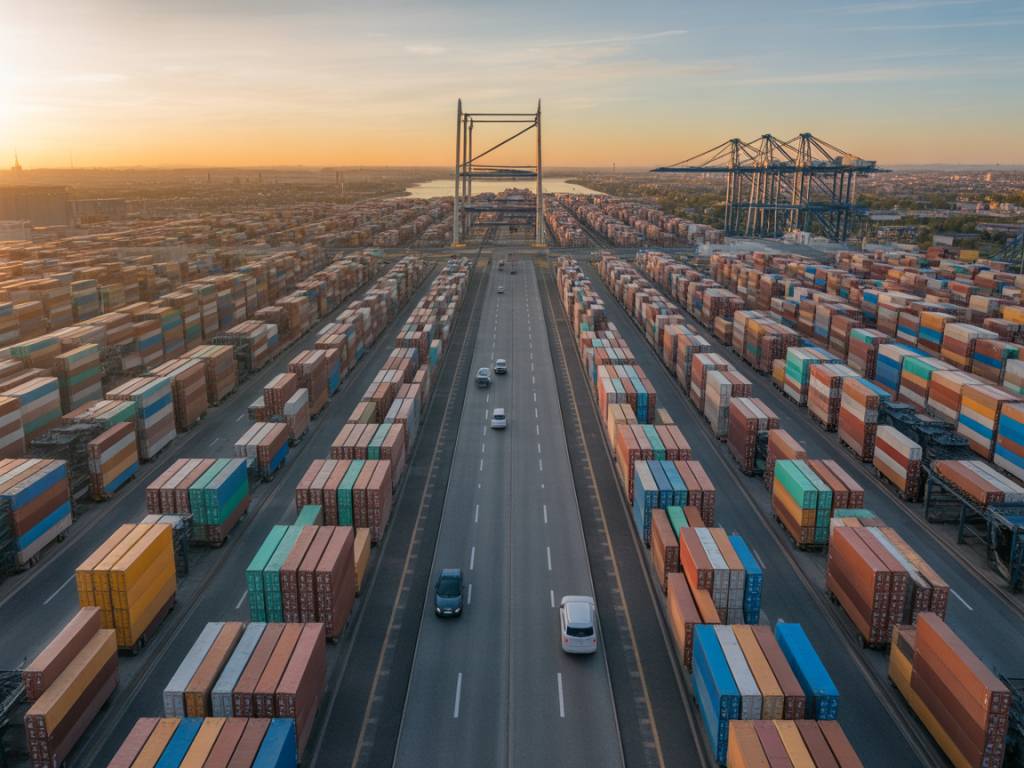Urban logistics: a green revolution in motion
From Paris to Berlin, and from Milan to Amsterdam, the image of urban delivery is changing rapidly. In a world grappling with CO₂ targets and saturated city centers, a new wave of startups is rewriting the script of last-mile logistics. And they’re not just talking sustainability — they’re doing it, bike pedal by bike pedal and kilowatt by kilowatt.
The last-mile delivery segment, often seen as the most expensive and environmentally impacting link in the logistics chain, represents nearly 30% of urban transport emissions, according to a McKinsey & Company study. Startups, leveraging technology and alternative mobility solutions, now see this challenge as an opportunity. But what’s really happening on the ground? Who are the players, and what can logistics professionals learn from their strategies?
Micromobility meets micro-warehousing
Facilitating emissions-free deliveries isn’t just about replacing diesel vans with e-vans. Newcomers like Urb-It (France), Zedify (UK), and Pickme (Germany) are integrating electric cargo bikes, AI-optimization tools, and decentralised micro-warehousing to build agile and sustainable delivery networks within congested urban environments.
“We realised early on that having a central hub outside the city, plus a micro-hub inside, gives us not just speed but also sustainability,” explains Anna Meier, City Operations Manager at Pickme Berlin. Their model? Multiple compact storage points located near dense delivery zones, supported by riders on cargo e-bikes — capable of carrying up to 250 kg while maneuvering through traffic and bike lanes.
This approach lowers both emissions and delays. According to data shared by Zedify, using electric cargo bikes in inner London has led to a 58% reduction in delivery time during rush hours and a 96% drop in direct CO₂ emissions compared to conventional van routes.
Tech is winning the last mile
Efficiency in urban logistics heavily depends on smart route planning and real-time tracking. Startups have no choice but to lean heavily into data. French startup K-Ryole, which produces smart electric trailers, embeds IoT sensors to monitor temperature, shock, and route deviations. These insights enable operational transparency that’s valuable for food delivery, pharmaceuticals, and even retail.
Meanwhile, Barcelona-based logistics tech firm Paack combines machine learning algorithms with crowd-sourced delivery networks to improve route grouping. Their model claims to reduce total kilometers travelled by 30%, essentially slashing unnecessary circuits that still plague traditional courier services.
“Our algorithms are not only optimising distances but aligning them with consumer behavior trends — failed delivery attempts are down by 40%,” says Paack’s co-founder Javier Santana. That translates to fewer redeliveries, less congestion, and better customer satisfaction.
The policy and regulation factor
Cities are playing a critical role in encouraging or hindering the shift toward greener logistics. From low-emission zones (LEZ), access restrictions, to dedicated delivery windows for zero-emission vehicles, municipalities are gradually forcing logistics actors to adapt.
In Paris, where the Zone à Faibles Émissions (ZFE) is tightening year after year, startups that prioritize electric or human-powered deliveries gain direct business advantages. Urban hub operator Bluedigo has noted a 20% increase in B2B clients specifically seeking zero-emission delivery guarantees since 2022.
But regulations alone don’t suffice. Infrastructure remains patchy. Many cities lag in providing secure bike lanes or parking and power access for micro-depots—a key friction point highlighted by 67% of urban delivery startups surveyed at the Smart City Expo World Congress 2023. Without logistical support from municipalities, scaling sustainable last-mile services remains an uphill ride.
The economics: sustainable, but is it viable?
Of course, the green wave in urban delivery comes with its own cost structures. Purpose-built electric bikes and trailers are expensive, ranging from €8,000 to €15,000 per unit. Add to that maintenance, training, and software subscriptions—can startups truly compete with established logistics giants, or are they just temporarily subsidised eco-initiatives?
Some believe scale and niche targeting are the keys. Stuart, originally a French startup now acquired by La Poste via Geopost, focuses on high-density areas and tight delivery windows for meal delivery and express retail. Their slim operations model — no sorting centers, only platform coordination between couriers and retailers — lowers the capex burden significantly.
Investors are taking note. EU-based venture capital in urban logistics tech surpassed €450 million in 2023, nearly double the amount in 2021. But they’re not just betting on clean delivery promises; they’re backing companies with operational discipline and a proven roadmap to profitability.
Corporate partnerships: a fast track to scaling
Rather than fighting for market share with the e-commerce giants, many urban logistics startups are allying with them. Amazon, for instance, has partnered with Eav Solutions in the UK to test modular e-cargo bikes in select cities. Meanwhile, Deutsche Post DHL has invested in smaller services like Greenway Logistics in Amsterdam to pilot zone-based parcel drops.
For startups, these partnerships can mean instant exposure, guaranteed volumes, and access to logistics knowledge. For corporates, it’s an opportunity to localize and decarbonize the last mile — without the inertia of internal development.
“It’s no longer a toss-up between ‘fast’ and ‘clean’. With the right partners, we can enable both,” notes Nora Zellner, sustainability officer at DHL Freight Germany. The pilot projects may be limited today, but they’re establishing templates that could easily go multi-city — or even cross-border — within a year.
Challenges ahead: fragmentation, fatigue, and infrastructure gaps
Despite strong momentum, the road is far from smooth. A core challenge remains the fragmentation of the urban logistics market. With multiple players often overlapping in the same zone — from couriers to dark stores to meal delivery — cities are becoming a battleground for sidewalk real estate and customer attention.
Moreover, delivery operators themselves face fatigue and turnover. Gig workers, often on the frontlines of green delivery, are increasingly questioning their remuneration and conditions. While sustainability is the promise to clients, worker welfare is emerging as the elephant in the room that most startups must now confront openly.
And then comes the infrastructure lag. Charging stations, permissions for micro-hub deployment, and protected bike lanes aren’t keeping up with the pace of innovation. If cities want to keep startups viable and scale their positive impact, collaboration across public and private actors must move beyond rhetoric to rapid implementation.
A sector redefining itself in real-time
Urban logistics, long dominated by heavy vehicles and fossil fuels, is currently undergoing its most significant transformation in decades. Startups are not only bringing creativity to the equation — they’re showing that greener last-mile delivery solutions can also be leaner, faster, and smarter.
It’s too early to say who will emerge as dominant players, and what the winning model will be. But one thing is certain: the urban logistics sector is no longer synonymous with pollution and congestion. A new ecosystem is taking shape — decentralised, decarbonised, and digitally optimised.
For logistics professionals, retailers, and policymakers alike, the message is clear: adapt to this green shift, or risk falling behind in a race where sustainability is no longer optional — it’s a strategic necessity.




